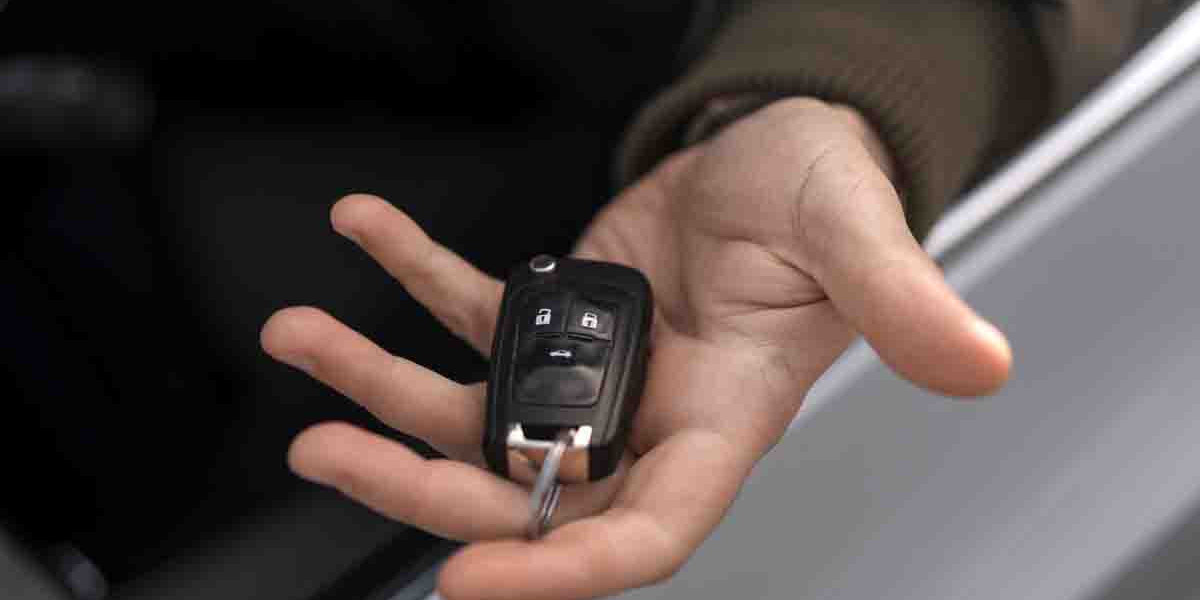Misplacing your car keys or discovering they’ve broken can cause an instant wave of panic. Whether you're stranded outside your vehicle or simply being proactive by seeking a backup, the question that immediately comes to mind is: "Where can I get a replacement car key?" The good news is—there are several solutions available, each suited to different needs and budgets. In this article, we'll take a deep dive into all your options, the types of car keys, costs involved, and how to avoid common pitfalls when replacing your car key.
Understanding the Types of Car Keys
Before you rush to find a replacement, it's important to know which type of car key you have. The method and cost of replacement often depend on the key type.
1. Traditional Car Keys
These are simple metal keys without electronic components. They were common in cars before the mid-1990s. They're the easiest and cheapest to replace.
2. Transponder Keys
Introduced in the late '90s, these keys contain a small chip that communicates with your car’s ignition. If the car doesn't detect the correct chip, it won’t start.
3. Remote Key Fobs
These allow keyless entry and may also control alarm systems. Some remote fobs also come with physical keys for ignition.
4. Smart Keys / Keyless Entry
Found in newer models, smart keys let you unlock and start your car without inserting a key. They're sophisticated, secure, and expensive to replace.
5. Switchblade Keys
These combine a physical key with a remote and flip out like a switchblade. If either part fails, you might need a full replacement.
Where Can I Get a Replacement Car Key?
There are several reliable places to get a replacement key, depending on the key type, your car model, and how quickly you need it.
1. Your Car Dealership
Pros:
Guaranteed compatibility
High-quality OEM parts
Ideal for newer or luxury models
Cons:
High cost (can be $150–$600+)
May take days to weeks
Requires proof of ownership
Car dealerships are often the go-to for modern, high-tech keys. However, they tend to charge a premium, and waiting times can be inconvenient. You’ll also need your Vehicle Identification Number (VIN), registration, and ID.
2. Auto Locksmith Services
Pros:
On-the-spot service
Typically cheaper than dealerships
Available 24/7 (for emergencies)
Cons:
May not handle all key types
Quality can vary by provider
Professional locksmiths can often come to your location and create a new key right then and there—even for transponder or remote fobs. Some even clone key chips or reprogram on the spot.
3. Online Retailers
Pros:
Affordable pricing
Wide selection
Convenient shopping
Cons:
Needs programming
Risk of ordering the wrong key
Shipping time
Websites like Amazon, eBay, or specialty auto key sellers offer replacements at competitive prices. You’ll likely need to visit a locksmith or dealership to cut or program the key after it arrives.
4. Big-Box Stores (Walmart, Home Depot)
Pros:
Low-cost options for traditional keys
Fast turnaround
Convenient location
Cons:
Limited to basic key types
No programming for advanced keys
These stores have self-service key kiosks or in-house staff who can duplicate basic car keys. Not ideal for electronic or smart keys.
5. Roadside Assistance Services
Some insurance providers and membership services like AAA offer key replacement or locksmith coverage. If you're a member, you may be able to get a replacement at little to no extra cost, especially in emergency lockout situations.
What You’ll Need to Get a Replacement Key
Replacing a car key is not as simple as walking in and requesting a duplicate. Here’s what you usually need:
Proof of ownership (Vehicle registration or title)
Valid photo ID
VIN number
Your car's make, model, and year
Current key (if you have it)
How Much Does a Replacement Car Key Cost?
Cost varies based on key type, service provider, and vehicle model:
| Key Type | Estimated Cost |
|---|---|
| Traditional Key | $10 – $50 |
| Transponder Key | $50 – $150 |
| Remote Fob | $100 – $300 |
| Smart Key | $200 – $600+ |
| Switchblade Key | $100 – $250 |
Going to a locksmith will usually save you 30–50% compared to a dealership.
How Long Does It Take?
Time varies depending on key complexity:
Traditional Key: 5–30 minutes
Transponder Key: 30–60 minutes
Smart Key / Remote Fob: 1–3 hours (plus potential shipping if ordered online)
Locksmiths are often the fastest solution, especially for emergencies.
Can I Program the Key Myself?
Some key types can be programmed at home, especially older models. For example, you might be able to:
Insert the existing key in ignition.
Turn it to "ON" and back to "OFF" multiple times.
Insert the new key to activate the programming mode.
However, this only works for select vehicles. Smart keys and newer models often require professional diagnostic tools to program the chip or sync the remote.
How to Prevent Key Loss in the Future
Losing a car key is frustrating—and expensive. Here are some ways to reduce the chances:
Get a spare key made while your current one is still working.
Use a Bluetooth key tracker like Tile or Apple AirTag.
Always put keys in the same spot at home.
Avoid leaving keys in bags or coat pockets that might get misplaced.
Tips for Choosing a Reliable Locksmith
If you go the locksmith route, make sure to:
Check online reviews
Ask for price estimates upfront
Ensure they are licensed and insured
Confirm they offer key programming if needed
Avoid deals that seem too good to be true. A poor-quality key or incorrect programming could damage your ignition system.
Are There Differences Between OEM and Aftermarket Keys?
Yes. OEM (Original Equipment Manufacturer) keys come directly from your car's brand and ensure top-notch quality and compatibility. They are more expensive but reliable.
Aftermarket keys are made by third-party manufacturers. They're cheaper but may not always offer the same fit, finish, or longevity. Some even lack chip compatibility, so always verify before purchasing.
Emergency Situations: What to Do If You're Locked Out
If you’re locked out and need a key immediately:
Call a local locksmith with 24/7 emergency services.
Check if your insurance or roadside service covers lockout situations.
Stay calm and safe—don’t try to force the door open, as this may cause damage.
Time is of the essence, and locksmiths can often create a new key even without the original.
Final Thought
So, where can you get a replacement car key? The answer largely depends on the type of key you own, how much you’re willing to spend, and how fast you need it. Dealerships, locksmiths, and online platforms all provide different solutions tailored to varying needs. For traditional keys, hardware stores might do the trick. But for high-tech smart keys, a certified locksmith or your car’s dealership is often the safest bet. No matter which path you choose, ensure you have the right information and documents handy. And remember—having a spare key made in advance is the smartest move any car owner can make.








